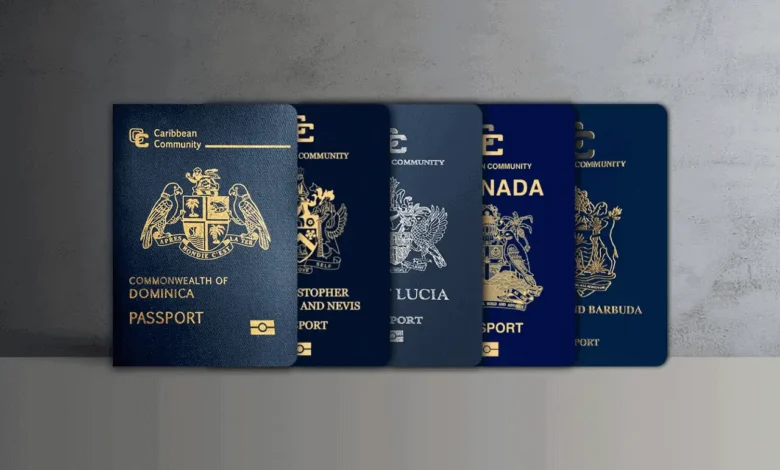Caribbean Citizenship Programs: An Era of Affordable Investment Ending Soon

In 1983, the small Caribbean islands of St Kitts and Nevis achieved independence from Great Britain, uniting to form the Federation of St Christopher (St Kitts) and Nevis. At its inception, the country’s economy was minuscule, heavily reliant on sugarcane—an industry known for its volatility and unpredictability. Faced with the need to stabilize and diversify their economic foundations, the government initiated an innovative economic citizenship program. Initially, this program only allowed for non-refundable donations. Over time, it expanded to include investments in government-approved development projects, offering investors not just citizenship but also potential returns on their contributions. Today, the program has evolved to allow investments in real estate, provided the investments meet certain monetary thresholds, with the promise that these investments remain returnable.
This citizenship-by-investment initiative proved a success, markedly improving the country’s financial autonomy. Compared to many smaller nations burdened by foreign debts, St Kitts and Nevis used this program to avoid the pitfalls of increasing sovereign debt, which often places a heavy burden on its citizens. Recognizing its success, other Caribbean nations followed suit, leading to a trend where, by 2016, countries including Dominica, Antigua and Barbuda, Grenada, and St Lucia had launched similar programs, enhancing their economic stability through attracting foreign investment.
The success of these programs across the Caribbean bolstered the national economies and contributed to a broader understanding and implementation of investment-driven citizenship schemes globally. Today, the programs continue to attract a diverse international audience eager to benefit from the unique opportunities they offer.
Economic Citizenship in the Caribbean: From Price Wars to Regulatory Pressures
The Caribbean region, known for its vibrant tourism industry, faced significant economic challenges following a series of devastating hurricanes in 2017 and the subsequent impact of the COVID-19 pandemic. These events severely disrupted the local economies, highlighting the importance of alternative revenue streams such as economic citizenship programs. These programs became financial lifelines for many island nations.
As the economic citizenship programs across different Caribbean nations were similar in benefits and drawbacks, competition intensified. That led to a “price war” among the nations as they sought to attract more investors by lowering the cost of obtaining citizenship. Initially, the cost for a second passport was around US 400,000, but competition drove some countries to reduce prices to as low as US 100,000, in addition to other fees for processing and due diligence.
The result was a marked increase in demand for Caribbean passports, with approximately 88,000 investors acquiring citizenship through investment, as of the latest data. This growing popularity, however, brought increased scrutiny, particularly from EU officials who expressed concerns about potential security risks despite the stringent due diligence processes that applicants undergo. These concerns stemmed from fears about the potential for improper vetting and the implications it could have for international security.
Faced with external pressure, particularly from the EU, Caribbean governments began to reconsider their pricing strategies to address these concerns. The EU threatened to withdraw visa-free access to the Schengen area, prompting Caribbean nations to contemplate raising their investment thresholds to reduce the influx of new citizens and address the EU’s security concerns.
This external pressure culminated in the spring of 2024 when leaders from Antigua and Barbuda, Dominica, Grenada, St Kitts, and Nevis signed a Memorandum agreeing to increase the minimum investment for citizenship to US 200,000. This move was intended to stabilize the market and ensure the continued integrity and acceptance of their citizenship programs. St Lucia delayed signing the Memorandum due to ongoing contractual commitments with developers, although it expressed intentions to comply as soon as feasible.
These changes signal a shift in the market dynamics for Caribbean citizenship by investment, moving away from the ultra-competitive pricing that characterized the programs in recent years. Investors interested in these opportunities are advised to act swiftly before the new pricing structure takes effect, as the window for securing citizenship at the current lower rates is closing rapidly.
Adjustments in Caribbean Citizenship Investment Pricing
In the spring of 2024, a significant shift occurred in the Caribbean citizenship-by-investment landscape as leaders from Antigua and Barbuda, Dominica, Grenada, and St Kitts and Nevis signed a Memorandum to raise the minimum investment required for citizenship to US 200,000. This change reflects a regional response to harmonize investment thresholds and stabilize the market, with expected increases in the minimum amounts needed for both property and business investments, particularly notable in Antigua. These adjustments are intended to more than double some of the current investment requirements, signaling a substantial shift from previous pricing strategies.
However, St Lucia has temporarily withheld from signing this Memorandum due to ongoing contractual commitments linked to several development projects. These projects are critical to St Lucia’s economy, with developers anticipating a surge in citizenship applications from potential investors. The St Lucian government faces possible legal challenges from developers should it decide to increase the investment cost for citizenship prematurely. Nonetheless, St Lucian officials have indicated their intention to sign the Memorandum as soon as it becomes feasible.
Opportunity to Secure Caribbean Citizenship at Current Prices
Prospective investors still have a narrow window to obtain Caribbean citizenship at the current lower rates until June 30, 2024, when the new pricing is set to take effect. For example, St Lucia currently offers citizenship for US 121,050 for single applicants, exclusive of fees charged by immigration agents. Antigua and Barbuda’s passport costs US 149,800, while Dominica’s rates are even lower. However, it’s important to note that Dominica’s citizens recently faced a loss of visa-free access to Great Britain and Ireland, which may affect the desirability of its passport. Adding dependent family members to a citizenship application will increase costs slightly, but more significant price increases are expected across the board as the new investment thresholds are implemented.
If you are interested in getting Caribbean citizenship, you can read more about them on our platform. Act quickly to take full advantage of the favorable terms before the impending price increases.



